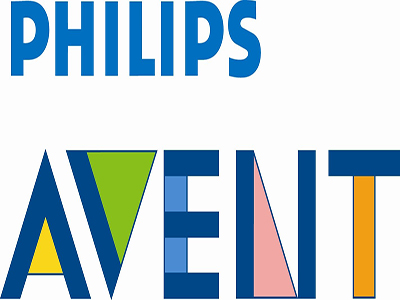PRESS RELEASE: 1st August 2015
Accra, Ghana/ Nairobi, Kenya – Philips Africa today unveiled the results of its latest research focused on supporting new moms in their breastfeeding journey, to mark World Breastfeeding Week (1-7 August 2015). The study, which surveyed over 400 working moms in Accra, Ghana and Nairobi, Kenya, identifies key barriers for breastfeeding including unsupportive work environments and cultural influences, and is an outcome of Philips’ pledge to the United Nations Every Woman Every Child initiative.
The reality for working mothers in urban Ghana and Kenya
The Philips study – supported by research company Dr. Monk aims to uncover the key breastfeeding obstacles for working women in both Ghana and Kenya in order to identify opportunities to support and empower them. Limited early initiation of breastfeeding, unsupportive work environments, and cultural influences, lack of access to breast milk expression facilities, poor daycare facilities, and impeding beliefs were among the challenges identified in the research.
Across the board, it was found that mothers know that breastfeeding is the right thing to do. Yet the ability to balance work and motherhood in a busy African city is hard and 52% of the women surveyed had to go back to work within three months, making breastfeeding or expressing difficult. In addition, pressure to work long days in order to make a sufficient income, stressful lives, and no space to express milk in the workplace, are all contributing factors to diminished breastfeeding rates.
Although 69% of women surveyed knew the importance of expressing breast milk if unable to breastfeed directly, the biggest barriers for new moms wanting to express included lack of space to express comfortably, access to technology like breast pumps, cooling and sterilization equipment and advice and coaching on the correct techniques to breastfeed enabling comfort and ease for both infant and mother.
Philips will utilize these findings in order to help countries, including Ghana and Kenya, with the healthy development of their infant population. Philips aims to use its rich innovation heritage and baby feeding expertise (through its extensive Philips Avent range) to encourage and empower women to combine going to work with breastfeeding. 
How breastfeeding aids survival
In 2013, an estimated 106,000 children died in Kenya and 62,000 in Ghana, with pneumonia and diarrhea being two of the leading causes of death.[1] Breastfed babies are 15 times less likely to die from pneumonia and 11 times less likely to die from diarrhea.[2] In fact, recent research has found that children in African countries under five who are breastfed have a 14 times greater chance of survival, and any increase in intensity or duration of breastfeeding can help.[3] Globally, it is estimated that the lives of more than 800,000 children could be saved each year if every child was breastfed.
“No mother should need to choose between earning a living, and giving their child the health benefits that only breastfeeding can provide” states Dr. Maarten van Herpen, Head of the Philips Africa Innovation Hub. “At Philips, we have started to develop several innovative ideas that were inspired by the findings in this report. Hopefully, these innovations will prove effective to address some of the challenges to breastfeeding faced by mothers. As this report shows, the barriers to breastfeeding depend on different situations of different mothers. The issues are diverse – and so is the range of answers needed.”
Commenting on the outcomes of the report, Leith Greenslade, a Vice Chair with the UN Special Envoy for Health, stated: “The vast majority of the 400 Kenyan and Ghanaian mothers surveyed know that breastfeeding is best, and yet it is a minority of mothers in both countries who exclusively breastfeed. Probe deeper and the mothers reveal a raft of barriers to breastfeeding, most common among them the need to return to work. The Philips’ report shines a light onto the widening chasm between breastfeeding rhetoric and reality for these working mothers. The world keeps instructing them to breastfeed early and exclusively when the realities of daily working life in urban Africa make it increasingly impossible. Our ultimate goal should be to create a world where breastfeeding mothers have the freedom to breastfeed, because as the research unequivocally demonstrates, breastfeeding is not just about child survival, it is fundamentally about mother empowerment.”
The detailed survey can be downloaded from http://www.2.forms.healthcare.philips.com/LP=288
For further information, please contact:
Radhika Choksey
Philips Group Communications - Africa
Tel: +31 62525 9000
E-mail: This email address is being protected from spambots. You need JavaScript enabled to view it.
About Royal Philips:
Royal Philips (NYSE: PHG, AEX: PHIA) is a diversified health and well-being company, focused on improving people’s lives through meaningful innovation in the areas of Healthcare, Consumer Lifestyle and Lighting. Headquartered in the Netherlands, Philips posted 2014 sales of EUR 21.4 billion and employs approximately 108,000 employees with sales and services in more than 100 countries. The company is a leader in cardiac care, acute care and home healthcare, energy efficient lighting solutions and new lighting applications, as well as male shaving and grooming and oral healthcare. News from Philips is located at www.philips.com/newscenter.
Notes :
The research was carried out in October of 2014, by Philips and Dr. Monk, who spoke to 400+ working mothers with children under two years of age. Research incorporated into the final report included:
- Desk research and consultations with international advisory group and local experts
- 30+ home visits for in-depth personal interviews with working mothers in Accra and Nairobi
- 12 focus groups in Accra and Nairobi, with on average eight working mothers per session, and one group with fathers
- Comprehensive survey among another 331 women in Accra and Nairobi
- Observations at daycare centers, baby shops, hospitals, public spaces, and homes




